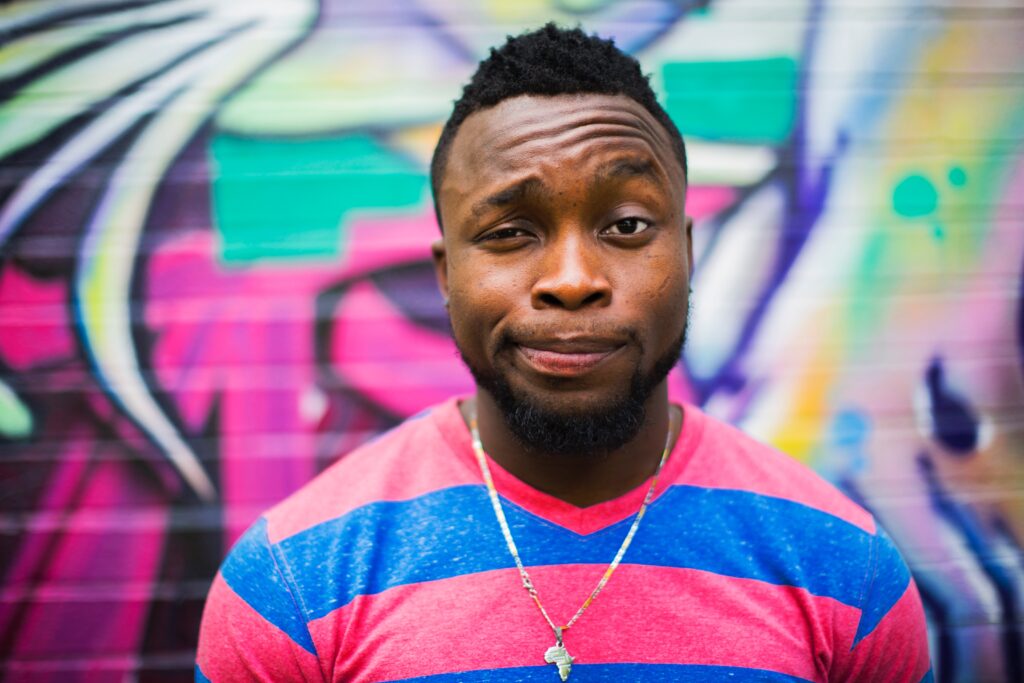Social anxiety is more common than you may think. 40% of people consider themselves to be chronically shy. Another 40% stated that they were previously very shy. And another 15% said they were shy in some situations. Guys, that’s 95% of people! You are not alone.
So many people suffer from this and I wish more of us would take the steps and do the work to overcome it. My life before and after shyness and social anxiety are so completely different. Now, it may not be so obvious on the outside, but inside, I feel like a new person.
Are you socially anxious and shy?
Let’s dig a little deeper and look at different types of social situations. There are really two types of social situations (situations in which other people are present).
1 – Interpersonal situations (interacting with others):
- Going to a party
- Meeting new people
- Job interview
- Sending back food or returning an item to the store
- Talking on the phone
- Conversing (maintaining or initiating)
- Talking to someone with authority
- Expressing personal opinion
- Having people over for dinner
- Being assertive
2 – Performance situations (you are the focus of attention)
- Acting
- Reading out loud
- Public speaking
- Talking at a meeting
- Playing an instrument in front of others
- Playing a sport in front of others
- Exercising in front of others
- Introducing yourself in a group setting
- Making a mistake in public
- Eating or drinking in front of others
- Writing while others watch
- Using public bathrooms
- Having someone watch over your shoulder while you work
- Leaving a voice message
If some of these situations make you feel uncomfortable, I totally understand. You are not alone. I used to have a very high level of fear for 95% of the above. They scared the shit out of me!
Everyone is different, and we all have our own unique combinations of what makes us uncomfortable and fearful. Some may hate eating in front of others, while others don’t care.
Do any of the above bring up feelings of fear in you?
People with social anxiety feel nervous in these situations because they are scared of doing something that will make they look incompetent. They don’t want to be criticized, judged, or make a bad impression.
If you have an issue with a lot of the things on the list above, then you probably have some form of social anxiety. The number of items that arouse fear and the intensity of that fear will give you a good gauge on how severe your social anxiety is.
Some may only have a fear of one social situation above, but the fear is so great that it negatively impacts their life to a significant degree. If that’s the case (only one thing impacts you), then it is still worth trying to overcome it.
Another potential sign of social anxiety may be these closely related traits: shyness, perfectionism, and introversion.
Shyness, Perfectionism, and Introversion
Shyness usually starts at a young age and if not dealt with, can lead to social anxiety (that was the case with me). I saw shyness as a negative thing and this led to fear social situations. Shyness, when seen in the right light, is a good thing. Use the strengths of shyness to your advantage and address the issues that are holding you back.
Perfectionism and social anxiety have some overlapping characteristics for obvious reasons – we don’t want to be seen as incompetent in front of others. Perfectionists have a super impossible standard for themselves, which they will never meet, so they set themselves up for failure from the beginning. This super high standard leads them to feel very nervous in social situations because they don’t want their flaws to be seen.
High standards can be a good thing if it helps you do better or work harder. However, for people with social anxiety, perfectionism is usually taken to the extreme and it interferes with performance. You end up spending way too much time rehearsing over and over and over and over again. Or you hinder your performance (before or after) by being overly critical of yourself.
Lastly, introverted people like to stick to themselves and are quiet in social situations. Being introverted doesn’t necessarily mean that they are anxious around other people.
Now that you have a general idea of what social anxiety is and if you have it, let’s explore how fear, panic, and worry play a role in social anxiety and shyness.

Pingback: Overcoming Social Anxiety and Shyness Guide – Wisdom For Life
Pingback: Understanding Your Social Anxiety – Wisdom For Life